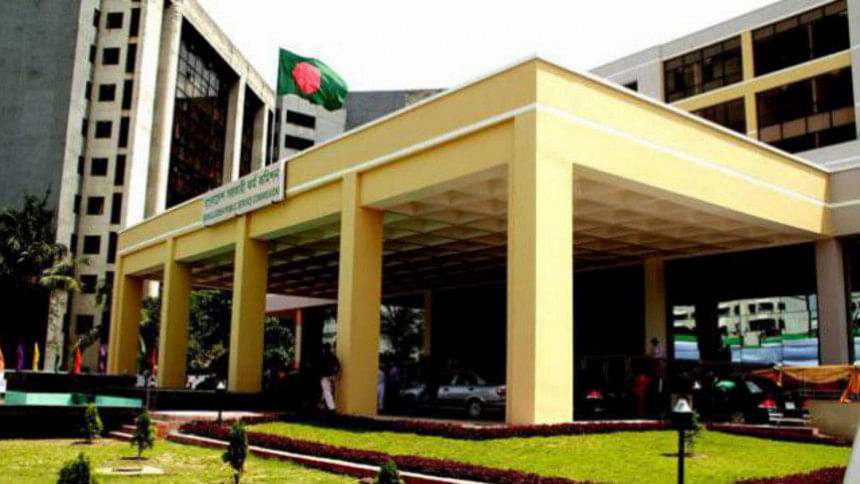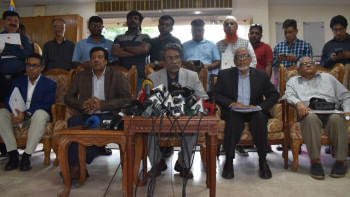Why reforming the public service sector is so crucial

One of the sweetest memories that I treasured during my two and a half years stay in Bangladesh is teaching at different civil service institutions. I don't know how much I added to the central bank as an economist, but I tried my best to convince hundreds of junior bureaucrats that Bangladesh is a vibrant economy where every civil servant's role is integral to cementing a solid path for development. And that is why they have to constantly improve themselves with quality training to enforce strong governance. They must pursue higher education with an exposure to western institutions and eastern growth secrets to reap the full benefits of globalisation for our motherland.
We have an abundant amount of literature on how sluggish and impeding our civil bureaucracy is. The time has come to let go of that past. We need to move forward and recruit young officers who can view national problems differently. They are more independent and want to express their opinions. Let us confer liberty of thought and speech on them. This doesn't mean young administrators will be allowed to join different political parties of their interest, but it allows them to express their methods of handling national issues such as poverty, corruption, judicial tardiness, women's deprivation, illiteracy, and public health.
This type of brainstorming is almost entirely absent in our bureaucracy. In most cases, you are a good officer as long as you can memorise the existing circulars and follow them to the T. That culture, which originally came from the British and flourished in the feudalistic patriarchal society of ours, should be prevented from growing any further. It is a culture that inhibits innovation among young officers. Once I worked in the Australian government and found how the secretary, whose office was in Canberra, visited the Sydney office almost regularly and listened to young officers for new ideas on improving the services.
Bangladesh can never become an upper middle-income country without modernising its bureaucracy, and that reform must start with fresh recruitments. The British never wanted a highly educated bureaucracy lest they confronted disobedience from the literate Indians. Such thinking is redundant now. Then why do such archaic moral vestiges still remain with us? Just because a senior officer didn't get enough funds to pursue higher studies in the past does not mean this should be the fate of new officers. Training makes officers productive, but only training is not enough nowadays. They need to pursue higher studies wherever opportunities prevail. Incorporating a higher studies programme would be the most effective way to educate the future bureaucracy to make them competent for an "internationalised" Bangladesh. We can't forget that we recruited brilliant graduates from universities and dampening their scholarly capabilities will cause an irreparable loss to the nation's human capital.
A meritorious young man coming from a poor family couldn't pursue doctoral degrees overseas. For the family's sake, he had to join the civil service at a time in his life when his potential was about to materialise. If the government gives him the opportunity, shouldn't he be grateful and serve the nation with deeper integrity? Doesn't our society benefit from his skills and expertise? If a talented young woman had stopped her education after becoming a magistrate, she will definitely feel the urge to exercise her aptitude in earning a foreign degree once the initial "powerful and happy" days of service are over. But the bureaucracy still suffers from the colonial mindset that these young men and women are destined to serve quietly, not to dream of higher studies. This process of blunting brains, so to speak, is more dangerous than the regular brain-drain our country faces.
Young civil officers are enthusiastic about training. But opportunities are still inadequate. A higher education policy for bureaucrats is not often clear and fair across cadres. There should be a high-level committee to advise the Prime Minister on new education and training policies for civil servants. The Public Administration Training Centre (PATC) at Savar can be made a full-scale university of public services where academics and bureaucrats will meet to transform it into a hub of knowledge on governance and growth. Chinese and Indian bureaucrats are now trained to face the economic competition among emerging nations. Whenever I had an opportunity to meet them, I found them to be formidable pundits for their countries' economic agendas, not simply clerk like—well versed in rules and regulations. Since the regime believes in a digital Bangladesh, making the government machinery efficient through the use of advanced technology is inevitable.
We understand that sending officers overseas or to training academies from an active department may not always seem feasible. The ministry may count how many years' service is lost in doing so. But a quality service-span of five years outweigh a poor-standard service time of twenty-five years. It's not simply worktime that enhances national output fast; it is labour productivity that quickens growth. An innovator is much more important for this nation right now than a typical "good official". We need more investment ambassadors at present than investment regulators.
Our poor performance in the knowledge economy index in Asia again warrants the reformation of the bureaucracy. The constant criticism of the bureaucracy and the dumping of all our failures on its shoulder has become like a broken record and does not help anymore. We have to rely on this machinery anyway. We cannot brush aside the role of public administration in using resources and in conveying development goals nationwide.
The prime minister has encouraged bureaucrats to look beyond their regular duties and many officers have already been rewarded for their out-of-the-box ideas and innovations regarding education, the environment and poverty alleviation. More can be done by empowering these officials with adequate training, interactions with think-tanks, and education opportunities. Let them dream, let them speak about our national interests, and thus, "let thousand flowers blossom."
Biru Paksha Paul is associate professor of economics at the State University of New York at Cortland.
E-mail: [email protected]





Comments